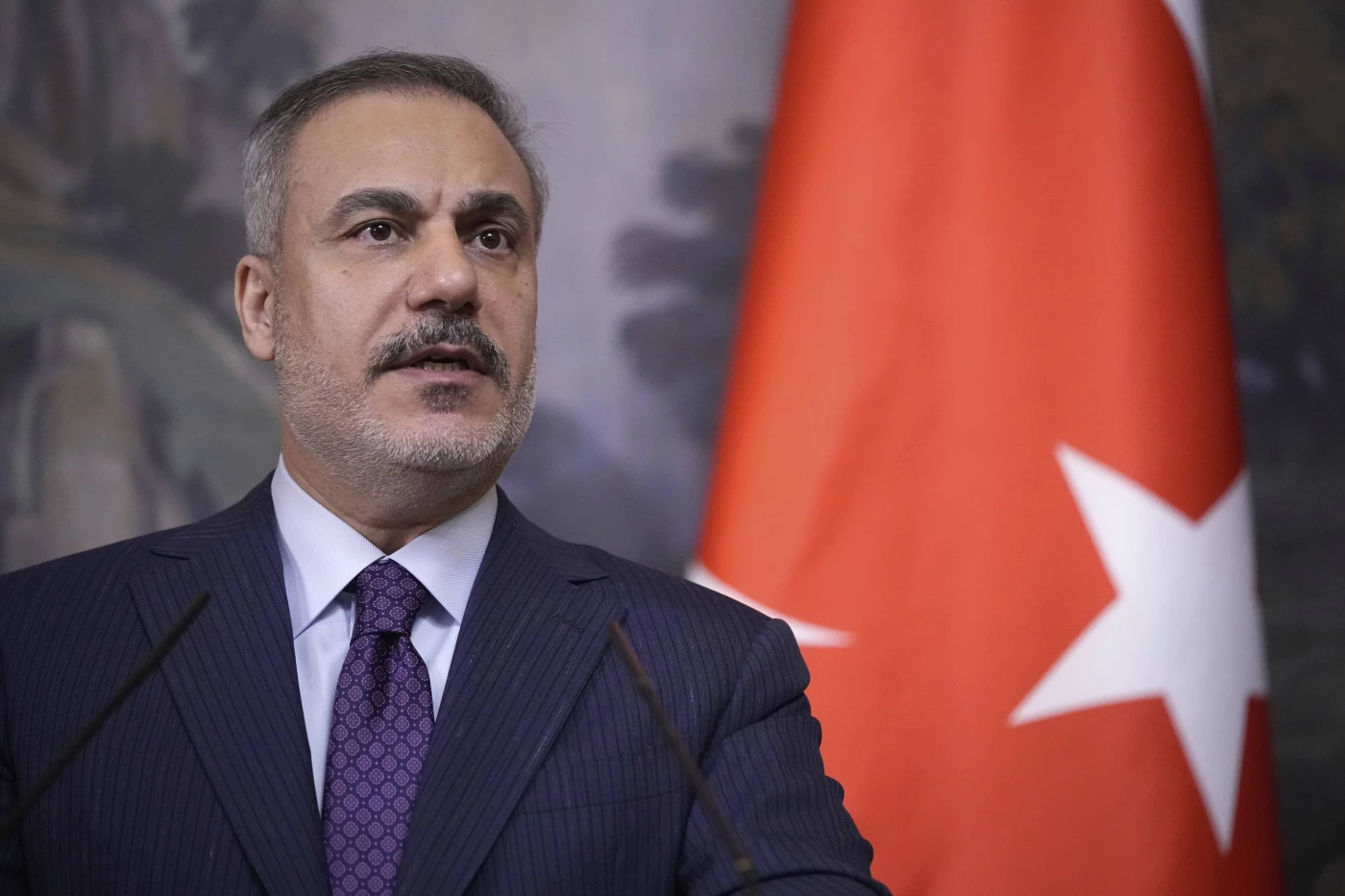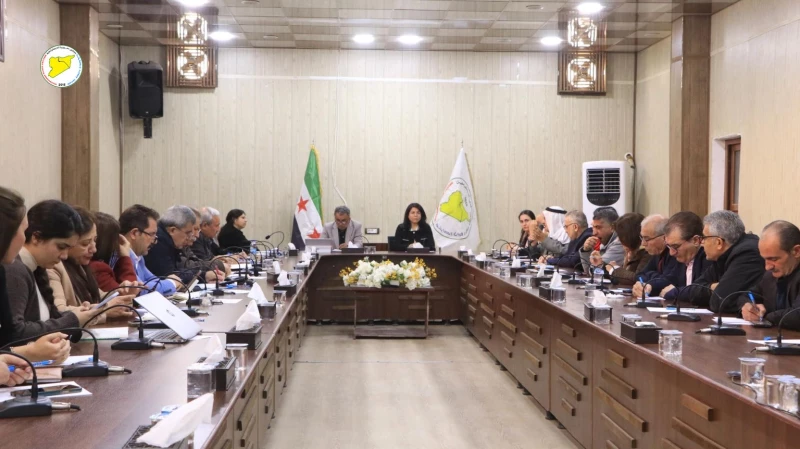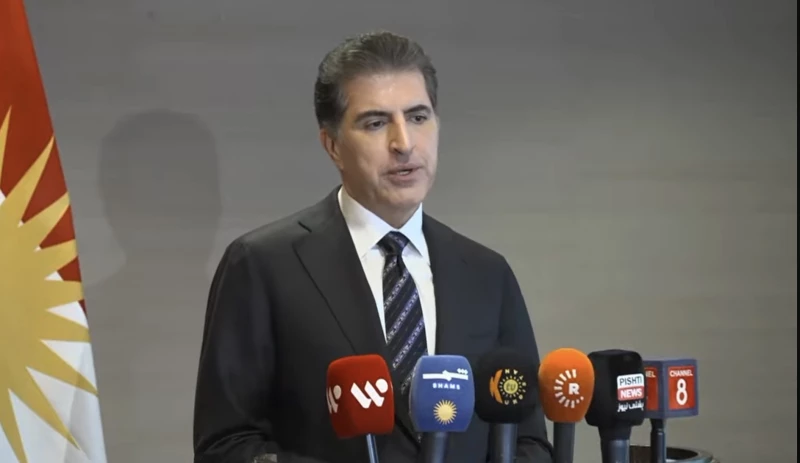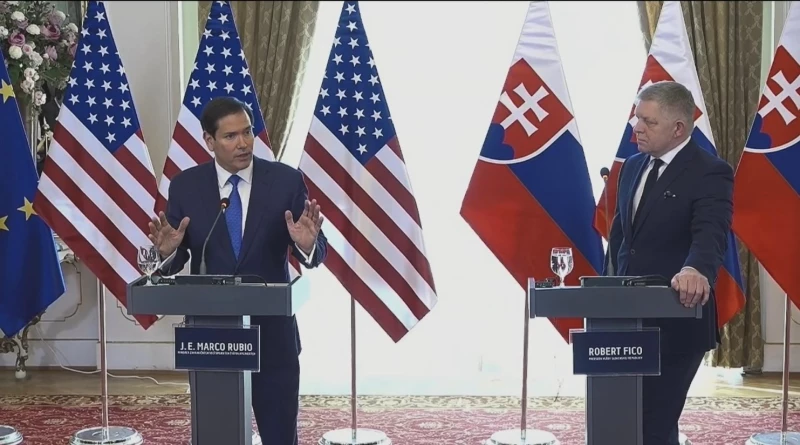ERBIL, Kurdistan Region of Iraq - Turkish Foreign Minister Hakan Fidan on Friday accused Kurdish forces in northeast Syria of taking advantage of the Israeli incursions in the country to delay the implementation of the agreement made with Damascus authorities in March.
“They’re [People’s Protection Units (YPG)] dragging their feet in advancing the agreement they made with the Damascus government. I think they are now hoping to create opportunities for themselves from the crisis that Israel has created in Syria,” said Fidan at a conference in Rome, organized by the Institute of International Relations (IAI).
“If a new wave of instability emerges in Syria, they [YPG] think this might be better for their own future,” the Turkish diplomacy chief added.
The YPG is the backbone of the Kurdish-led Syrian Democratic Forces (SDF), an umbrella group that incorporates a broader number of armed forces in northeast Syria.
Syria's Interim President Ahmed al-Sharaa and SDF chief Mazloum Abdi signed an agreement on March 10 to integrate the Kurdish-led forces and institutions in northeast Syria into the Syrian state.
The agreement has not come to fruition yet, with clashes frequently occurring between armed groups affiliated with the two sides in recent weeks. Both parties have accused the other of being the instigator.
"If the YPG can make an agreement with the Damascus government, we think this would be good,” asserted the Turkish minister, “even though we were not 100 percent satisfied with its provisions.”
Fidan accused the YPG of having ties with the Kurdistan Workers’ Party (PKK), a Kurdish armed group that Turkey designates as “terrorist” and has been in conflict with for decades, and framed the YPG of posing “threats toward Turkey.”
The PKK in May announced its decision to dissolve and disband, upon the call of the organization’s detained founder Abdullah Ocalan, marking an end to their armed struggle against the Turkish state that spanned four decades and claimed tens of thousands of lives.
Turkey sees the YPG as an extension of their now-disbanded foe.
“Turkey sees that many PKK members from Iraq and Iran are working together with the YPG. They are not there for Syria, they are there to fight against [Turkey],” said Fidan. “Therefore, as long as this threat and certain capabilities exist, we cannot be complacent and must take the necessary measures. “
The minister stated that Ankara does not currently wish to intervene in the matter as they are “giving both Damascus and the YPG a chance to solve their own problems,” noting that they expect both parties “to contribute to Syria's general stability and to address [Turkey’s] security concerns.”
In a presser in mid-August, Fidan slammed the YPG for not joining the PKK in the disarmament process, claiming that the group has stated: “the [peace] process that is underway in Turkey does not concern us.”
“[Then] what is it that concerns you? Are you interested in making the beloved Kurdish people in the region, our Kurdish brothers and sisters in Syria, pawns of Israel?” said the minister, adding that they have not witnessed “any positive developments in Syria that would inspire confidence or indicate that the organization has eliminated the threat of armed action, neither after March 10 nor after the process in Turkey.”
In an interview with the SDF-affiliated Hawar News Agency (ANHA) earlier in August, Abdi said that the integration of armed forces and institutions of north and east Syria into the Syrian state cannot be achieved by force, expressing their willingness to take “practical steps” toward an understanding with Damascus.
“Integration means partnership. Between all Syrians, between Syria's components, and between all existing administrations, a new Syria must be built on the basis of a new partnership. This cannot be imposed by force, and from the beginning, we have opposed any attempt to impose it by force,” Abdi told ANHA.
Reporting by Hevi Karam



 Facebook
Facebook
 LinkedIn
LinkedIn
 Telegram
Telegram
 X
X


